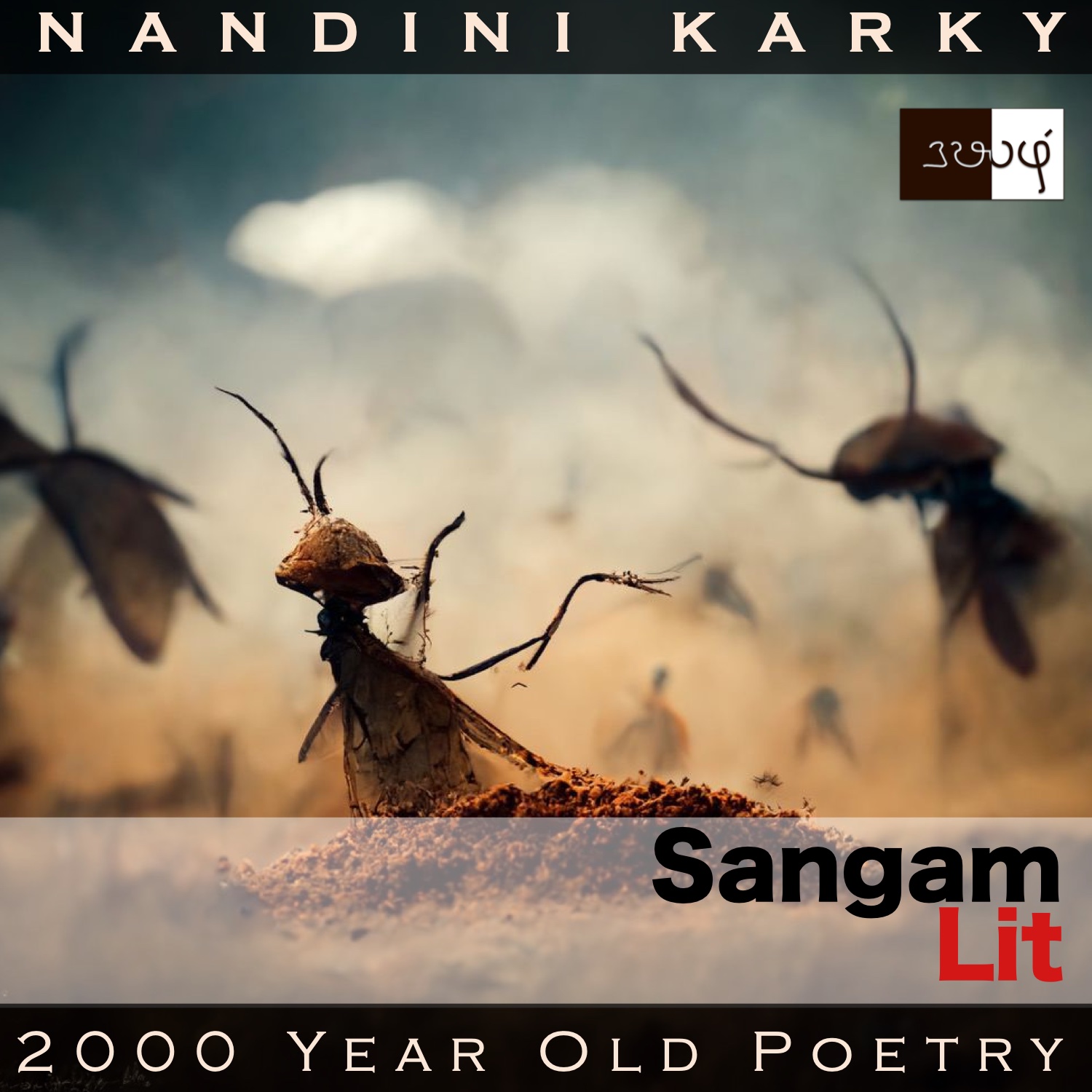Podcast: Play in new window | Download
Subscribe: Apple Podcasts | Spotify | Amazon Music | Android | iHeartRadio | Email | TuneIn | RSS | More
In this episode, we perceive the fury of a king, as portrayed in Sangam Literary work, Puranaanooru 51, penned about the Pandya King Koodakaarathu Thunjiya Maaran Vazhuthi by the poet Aiyoor Mudavanaar. Set in the category of ‘Vaagai Thinai’ or ‘King’s victory’, the verse speaks about the state of those who oppose this Pandya king.

நீர் மிகின், சிறையும் இல்லை; தீ மிகின்,
மன் உயிர் நிழற்றும் நிழலும் இல்லை;
வளி மிகின், வலியும் இல்லை; ஒளி மிக்கு
அவற்று ஓர் அன்ன சினப் போர் வழுதி,
‘தண் தமிழ் பொது’ எனப் பொறாஅன், போர் எதிர்ந்து,
கொண்டி வேண்டுவன் ஆயின், ‘கொள்க’ எனக்
கொடுத்த மன்னர் நடுக்கு அற்றனரே;
அளியரோ அளியர், அவன் அளி இழந்தோரே
நுண் பல சிதலை அரிது முயன்று எடுத்த
செம் புற்று ஈயல் போல,
ஒரு பகல் வாழ்க்கைக்கு உலமருவோரே!
After the long reign of Chozhas and Cheras in Puranaanooru, we turn to the Pandya dynasty in this poem about Maaran Vazhuthi. The poet’s words can be translated as follows:
“If water were to flood over, there can be no dam that can rein it in. If fire were to blaze beyond bounds, there can be no shade that protects lives on earth; If the wind were to become fierce, there can be no strength to face it; With radiance brimming over, akin to all these elements, when raging Vazhuthi of many battles refuses to accept that ‘cool Tamil land belongs to all’, and decides to oppose them and demands tributes from them, if kings say ‘have it’ and render what he seeks, they need not tremble. But pitiable indeed are those, who have lost his grace, for akin to the many tiny termites that raise their red mounds with great hardship, they would flutter about, living only a life of a single day!”
Let’s delve into the nuances of this verse. The poets starts by listing the basic elements and their uncontrollable rage. First, it’s water, which people in Tamilnadu have first hand experience of, at the moment, with the North East Monsoon showering upon the land. Specifically here, the poet zooms on how when water swells, there is no force that can imprison it; Likewise, when fire starts to spread with great speed, living beings would be left with no shade to rest upon; And so too, when the winds blow in great gusts, there is no one who can fend that off with their strength. Coming to the situation at hand, the poet points out how like these enraged elements, the king too would rise up, refusing to concede that the land of the Tamils belongs to other kings and demands that they pay tributes to him. At this juncture, when these other kings decide, ‘It’s better to do as this chap asks’, and go to him and say, ‘Here you go! Whatever you demanded of us has been rendered unto you’, then there is nothing for them to worry about any more. However, if the same kings decide to oppose him, then their life would amount to nothing more than the life of winged termites that raise many great mounds, but then fall and perish within a day, the poet concludes.
The last graphic simile about winged termites is to subtly bring to fore that no matter their soaring red forts of defence, these opposing kings stand not a chance against the fearsome Vazhuthi. In this image of winged termites that live but for a day, I found a metaphor for the nature of our lives. Although the poet here seems to warn those other kings with this message, tangentially, it should make us reflect on the fights we choose to take upon in this fleeting life, and decide what’s worth and what’s not, in the frame of things!




Share your thoughts...